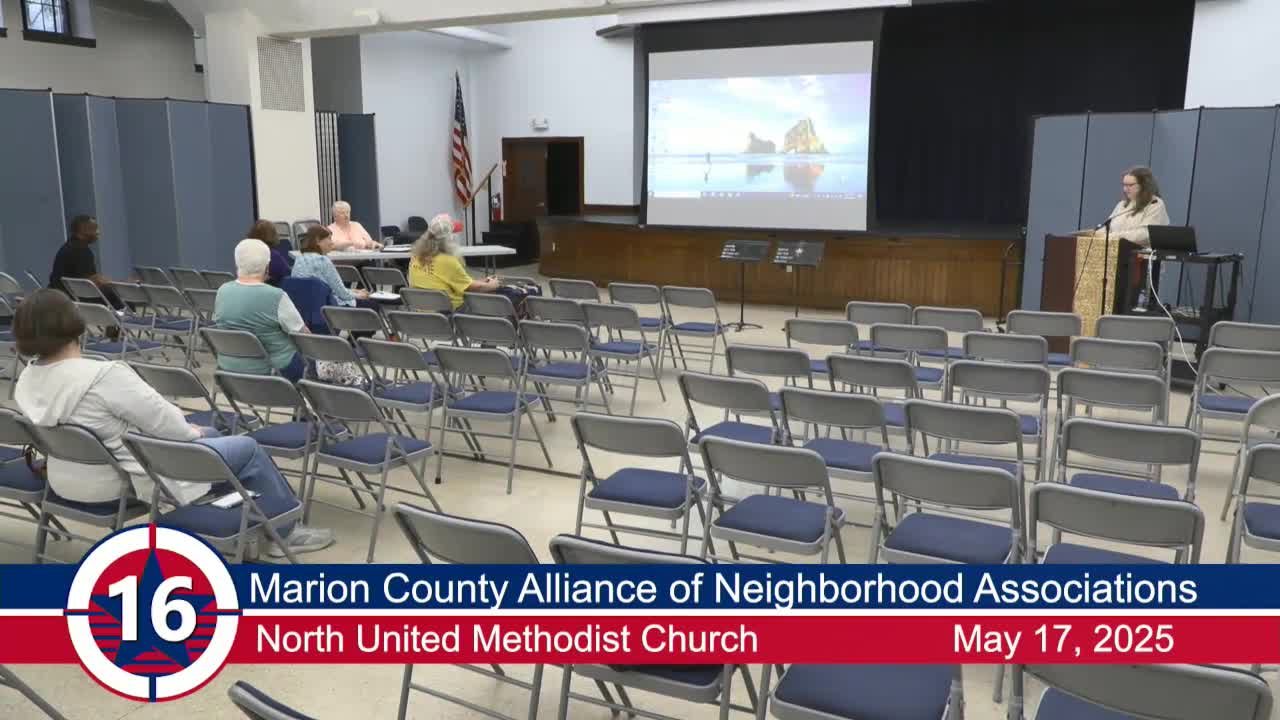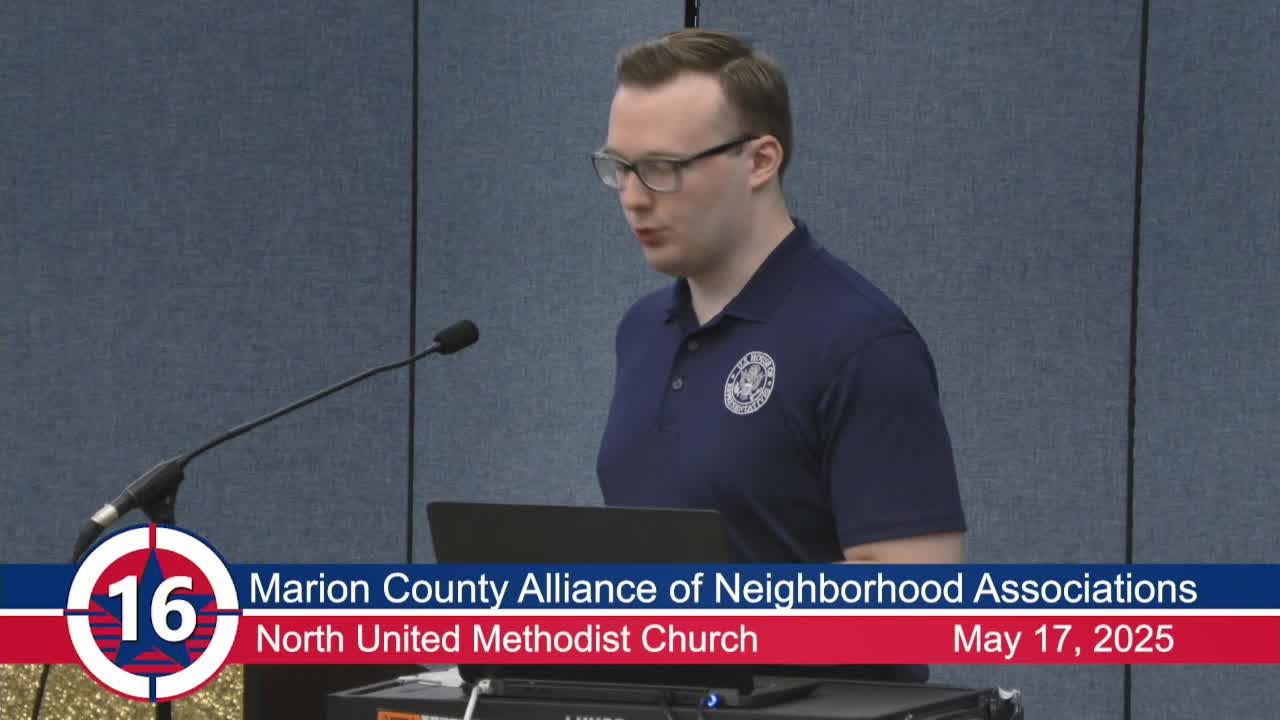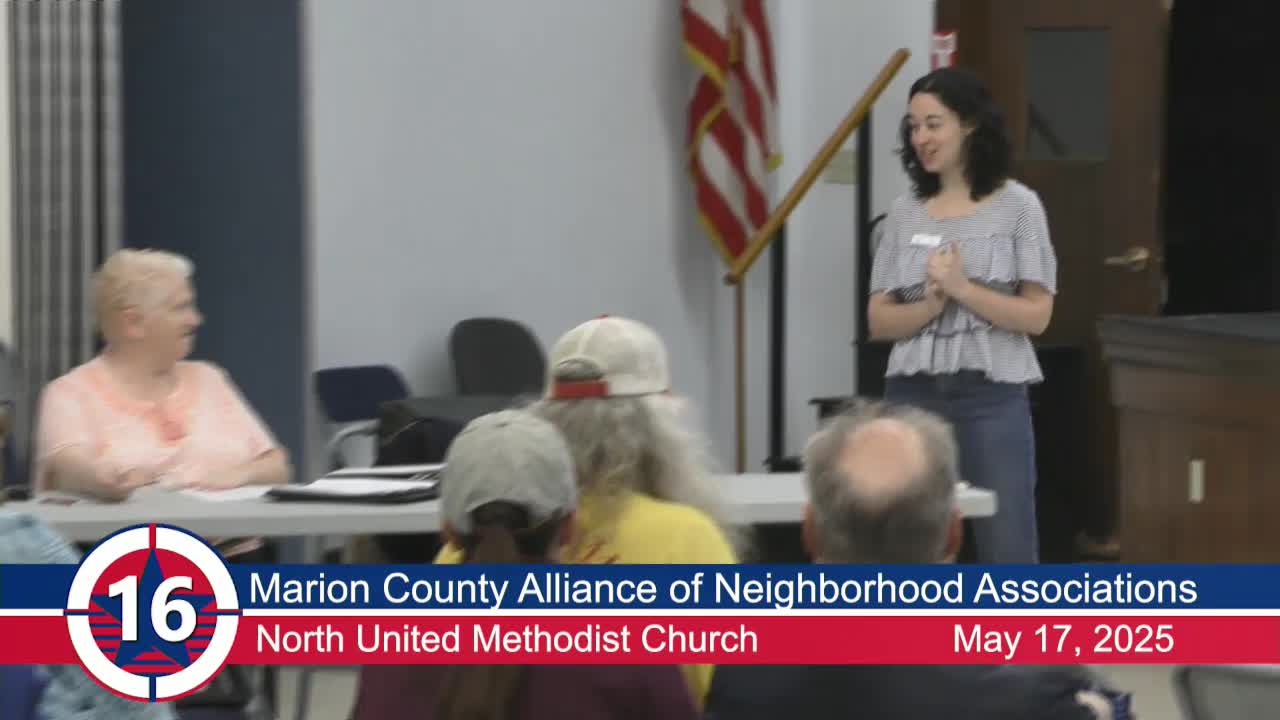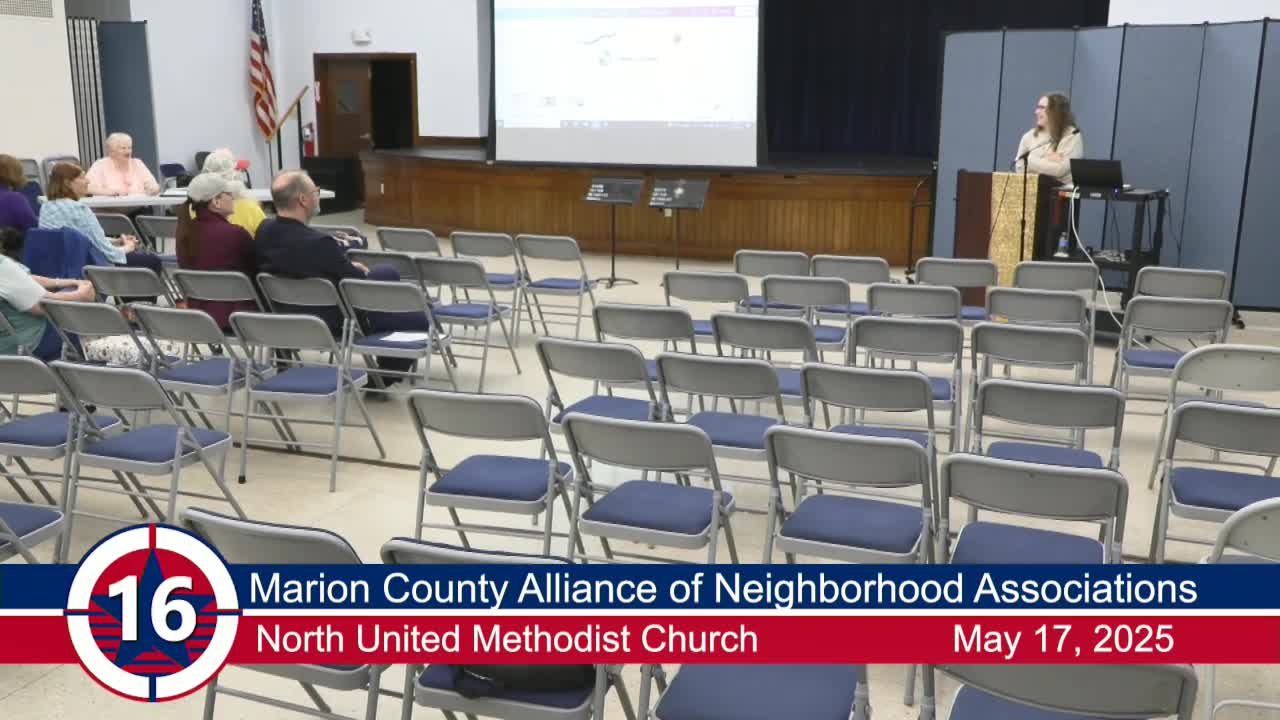Article not found
This article is no longer available. But don't worry—we've gathered other articles that discuss the same topic.

Residents warned about proposed large data-center zoning in Franklin Township; concerns raised about utilities and tax breaks

Carson office warns of federal budget uncertainty; highlights local projects and asks community to report concerns

City planners schedule June open houses for Marion County comp plan update; residents question limited in-person meetings

